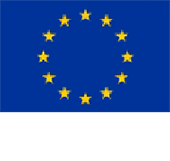Athens Water Supply and Sewerage Company (EYDAP SA) is the largest of its kind in Greece. The Company serves in the water supply sector approximately 4,300,000 customers through an extensive network of 2,020,000 water meters and a 9,500 km of water pipes. The sewerage sector serves 3,500,000 residents with sewers spreading at almost 6,000 km. The Company operates four water treatment plants that have a nominal supply from 200.000 to 600.000 m3/day each.
EYDAP has designed and implemented the sewage treatment system in Metamorfosi Attikis, Psyttalia Island and recently in Thriassio Pedio. The Metamorfosis WWTP is the only plant in Attica Prefecture that can receive and treat septic sewage generated from areas without sewerage system. The design capacity of the plant is 24,000 m3/day of septic sewage and 20,000 m3/day of municipal wastewater. The Psyttalia WWTP includes pre-treatment, primary and secondary treatment with biological nitrogen removal, sludge treatment and cogeneration of electrical and heat. The Psyttalia WWTP capacity is 5,600,000 p.e., being one of the biggest WWTPs in Europe and worldwide. The average supply of incoming wastewater is the range of 730, 000 m3/day. The first phase of the project has been in operation since 1994, the second phase since 2004, while the third and final phase of works completed in 2007 with the construction of sludge thermal drying unit. EYDAP undertook the construction and operation of the project "Main Collectors and Wastewater Treatment and Disposal in Thriassio Pedio", which is a sensitive environmentally area. The aim was to upgrade the quality of life of 117,000 inhabitants, restoring the balance of the ecosystem of the sea of Eleusis and generally contributing to the sustainable development of the region. The project of Thriassio Pedio serves residential areas, as well as industrial and commercial areas. The Thriassio Pedio WWTP has been in operation since December of 2012. EYDAP’s expertise in operating large water and wastewater treatment plants and networks ranks it very high among the Mediterranean water and wastewater companies. EYDAP maintains an up-to-date R&D department staffed with experienced researchers as well as modern laboratories and installations. EYDAP’s researchers have already published a large number of scientific work regarding water quality control and related innovative analytical methods. The R&D department of EYDAP is going to be responsible for the participation of the company in the project and for the implementation and evaluation of the actions.




